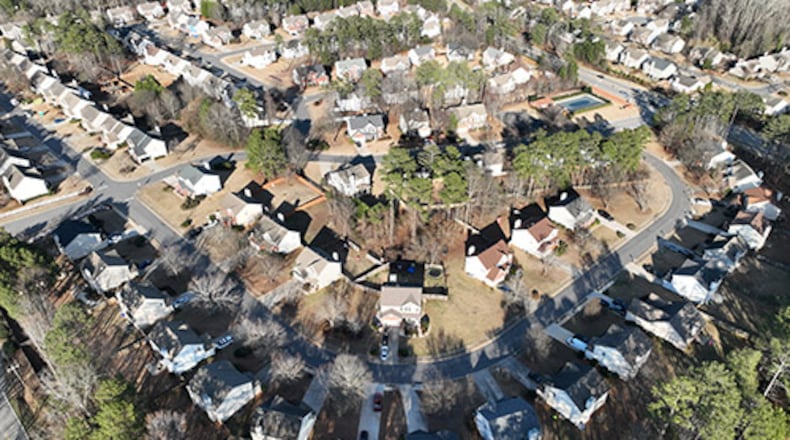In the first quarter of 2024, investor purchases of homes exceeded $1 billion, according to a recent report by real estate brokerage firm Redfin which registered a slight increase in purchases across the country.
According to Redfin, although investor purchases were down by almost 4% in metro Atlanta from last year, they still totaled $1 billion in the first three months. Atlanta ranked tenth among metro areas for the share of homes bought by investors, with a 21.1% share. Miami, Florida ranked first with a 30.6% share.
The Atlanta Journal-Constitution unraveled Wall Street ownership of single-family homes in its investigative series “American Dream for Rent.” The series shined a light on institutional investors squeezing out middle and low-income buyers trying to get into affordable housing and starter homes.
In the intervening time, lawmakers have proposed limits on how many single family homes institutional investors can buy. But federal legislation has since stalled after a pandemic-era boom in Wall Street investment cooled.
However, the Redfin report, published in May, suggests an uptick in investor ownership of new homes for the first time since mid-2022 — although purchases climbed only 0.5%.
The report was based on Redfin’s analysis of county home purchase records in 39 of the most populous metro areas in the United States. The firm defined investor as “any institution or business that purchases residential real estate.”
David Howard, the CEO of the trade association the National Rental Home Council, which represents several corporate investors of rental homes, said investor purchases were down compared to last year.
Housing supply was “running at historically-low levels,” he said, and high mortgage rates were pushing the limits of what was affordable, making rental homes a key component to help people get into housing.
“In this environment we need to look for ways to expand the diversity of housing opportunities, so that we can provide families with more options, not fewer,” he said.
But opponents of institutional investment say the impacts of investor ownership have worsened an already challenging environment that includes high mortgage rates, a lack of inventory and few affordable housing options.
Taylor Shelton, a housing expert and assistant professor in the Department of Geosciences at Georgia State, said Redfin’s findings add to a “growing body of evidence” that institutional investment in Atlanta has a chokehold on renters and people wanting to buy a home.
“Without meaningful action from our state and local governments to discourage these investors through regulation, they will continue to target metro Atlanta and rake in record profits at the expense of regular working people who are facing rising rents and home prices that far outpace growth in wages,” Shelton wrote in an email.
There has been a legislative response to investors gobbling up single-family homes. Lawmakers in Congress have proposed the End Hedge Fund Control of American Homes Act to place limits on institutional investors.
Adam Smith, a Washington congressman, introduced the House version of the bill in December. His spokeswoman Jaelin O’Halloran said Smith would reintroduce the bill if it doesn’t gain traction its first go around.
In a statement, Smith said that people trying to buy a home should not have to compete with hedge funds.
“The significant increase in large institutional investors and private equity firms purchasing single-family homes is accelerating our nation’s housing crisis at the expense of prospective homebuyers and renters,” he said in a statement.
Sen. Jeff Merkley of Oregon introduced the Senate version of the bill. He said communities in Georgia, his home state and countless others should cater to families and not be “profit centers for hedge funds.” Wall Street investment in housing was contributing to soaring home prices and rents, he added.
The issue of investor ownership crosses party lines. This year in Texas, Gov. Greg Abbott urged legislators to take action to curtail institutional investment and bulk buying of residential homes.
Although a recent study found that Georgia was most at risk from Wall Street investment in housing, state lawmakers have taken no meaningful action to curb it.
About the Author
Keep Reading
The Latest
Featured



